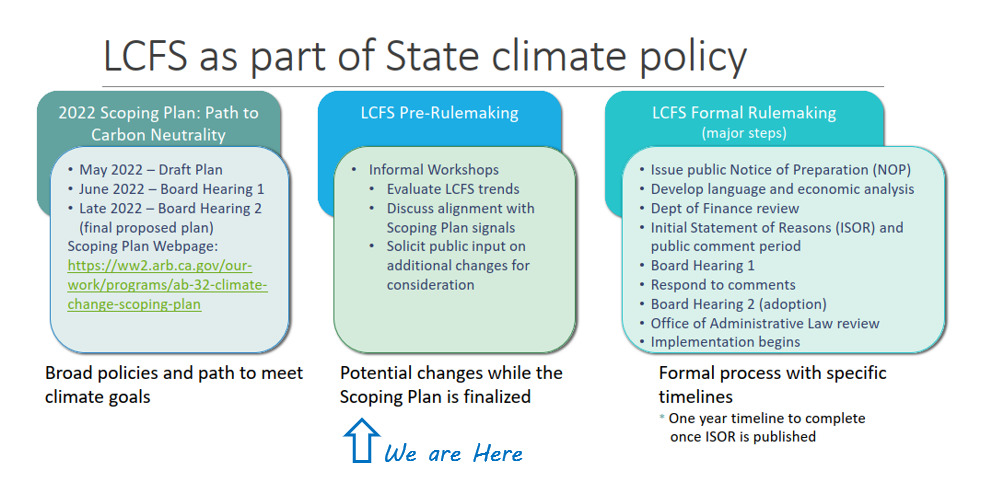The California Air Resources Board (CARB) recently held a workshop for stakeholders in the Low Carbon Fuel Standard program. The presentation included the much-anticipated proposed updates to the Carbon Intensity standards in the program as well as a few new concepts. PineSpire has summarized two key proposed changes for you below.
1. Increasing the Demand for LCFS Credits by tightening the Carbon-Intensity Standard.
The Carbon Intensity Standard (i.e. how much Carbon is permitted in transportation fuels) is the key factor in the amount of deficits oil and gas companies have, and the amount of credits generated by low/no carbon fuel sources. Currently, the LCFS program is set at a 20% reduction target by 2030; based on the fact the LCFS program is already exceeding current reduction goals, CARB proposed to increase this target to 25% or 30% by 2030. The higher targets would help ensure that the supply side of LCFS credits does not outstrip the deficit-holder’s demand for credits and keep the marketplace in balance.
2. Potentially introduce Phase-Out of Vehicle Types, such as e-forklifts.
CARB also introduced the concept of ‘phase-out’ for discussion in the workshop. The stated intent is that low carbon-fueled vehicles that are widely adopted would phase out of eligibility in the LCFS program. While CARB’s intent is to focus LCFS values on more emergent vehicle types, this proposal is problematic and inconsistent with overall CARB goals. Most importantly, this proposal is at odds with the goals of CARB’s own proposed Zero-Emission Forklift regulation. Additionally it sends the wrong market signal to other low-carbon vehicle and fuel technology developers. The proposed phase-out in conjunction with the Zero Emission and Advanced Clean Fleet rules would essentially remove the carrot and only leave the stick.
Where do the proposed changes to the LCFS Program go from here?
We are in the middle of a multi-year process for California to update its overall Green House Gas reduction goals and the LCFS goals specifically. At this time, CARB is focusing on workshops, public comment, and feedback to refine its proposals before drafting changes to the regulation.

PineSpire is actively participating in all of CARB’s processes on behalf of our customers. If you would like to submit comments directly to CARB, you can do so here. You can also reach out to PineSpire to learn more and join voices in influencing the future of the LCFS program!
